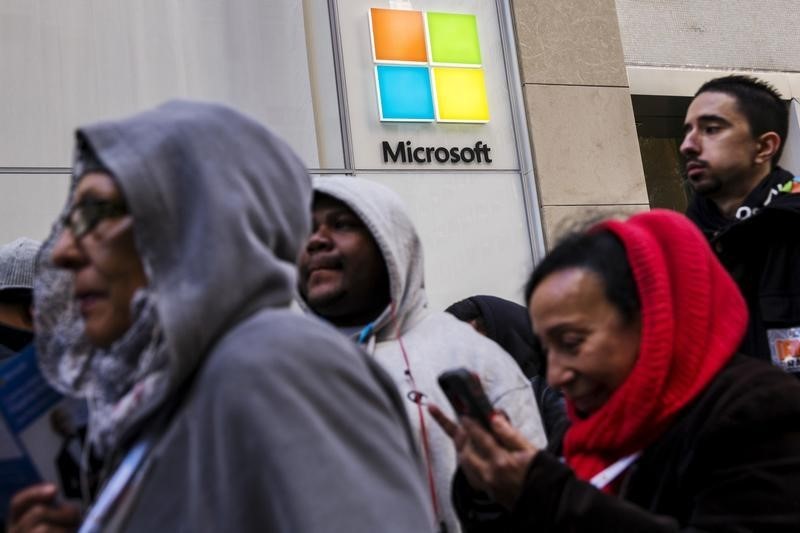Fed’s Powell opens door to potential rate cuts at Jackson Hole
Microsoft Corporation (NASDAQ:MSFT) has announced the launch of its first custom AI accelerator, Maia, along with an Arm-based data center CPU named Cobalt, signaling a strategic move into the custom chip market to challenge Nvidia (NASDAQ:NVDA)'s stronghold. The reveal occurred during the Ignite conference on Wednesday, as the tech giant seeks to offer cost-effective alternatives in the rapidly growing AI accelerator market.
Maia is poised as a direct competitor to Nvidia's high-cost GPUs, which can reach up to $30,000 per chip. Despite such prices, Nvidia has maintained an 80-95% market share and reported a net margin of 50% last quarter. Microsoft's Maia aims to disrupt this by running on more affordable Ethernet networking equipment, unlike Nvidia's reliance on Infiniband infrastructure. Additionally, Microsoft has developed a unique server rack equipped with liquid cooling specifically for Maia and future AI accelerators.
The design of Maia benefited from a collaboration with OpenAI, optimizing it for AI models and algorithms. This partnership reflects Microsoft's broader commitment to AI as evidenced by its investment in OpenAI, the creators of ChatGPT.
Cobalt, Microsoft's new CPU, enters the market to compete with Amazon (NASDAQ:AMZN)'s Graviton CPU, which currently boasts adoption by 50,000 AWS cloud customers. The introduction of these new chips does not signify a departure from existing technologies for Microsoft. The company plans to continue deploying systems with Nvidia H100 and AMD (NASDAQ:AMD) MI300 chips and has pre-announced the availability of Nvidia's H200 system for next year.
The strategic inclusion of both specialized and generalized AI accelerators in its cloud offerings suggests that Microsoft is positioning itself to cater to diverse computing needs while also pushing for more cost-effective solutions. This move could potentially alter the market dynamics currently dominated by expensive GPUs.
The AI accelerator market itself is on a trajectory of rapid growth, projected to reach $150 billion by 2027. With this expansion comes increased competition and innovation as companies like Microsoft forge ahead with custom solutions like Maia and Cobalt to meet the demands of AI training and inference workloads.
This article was generated with the support of AI and reviewed by an editor. For more information see our T&C.
